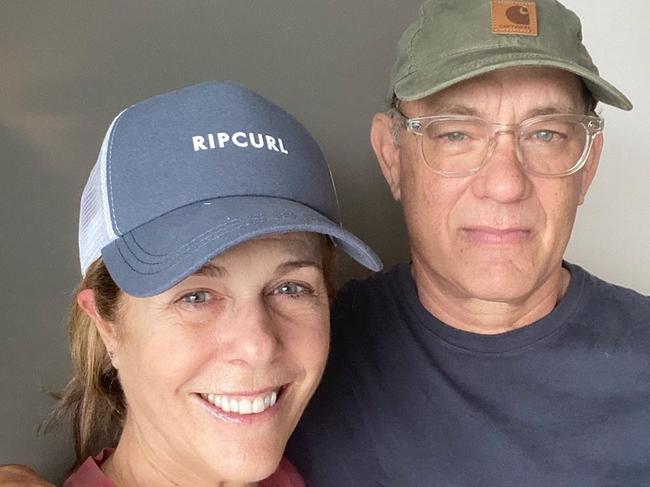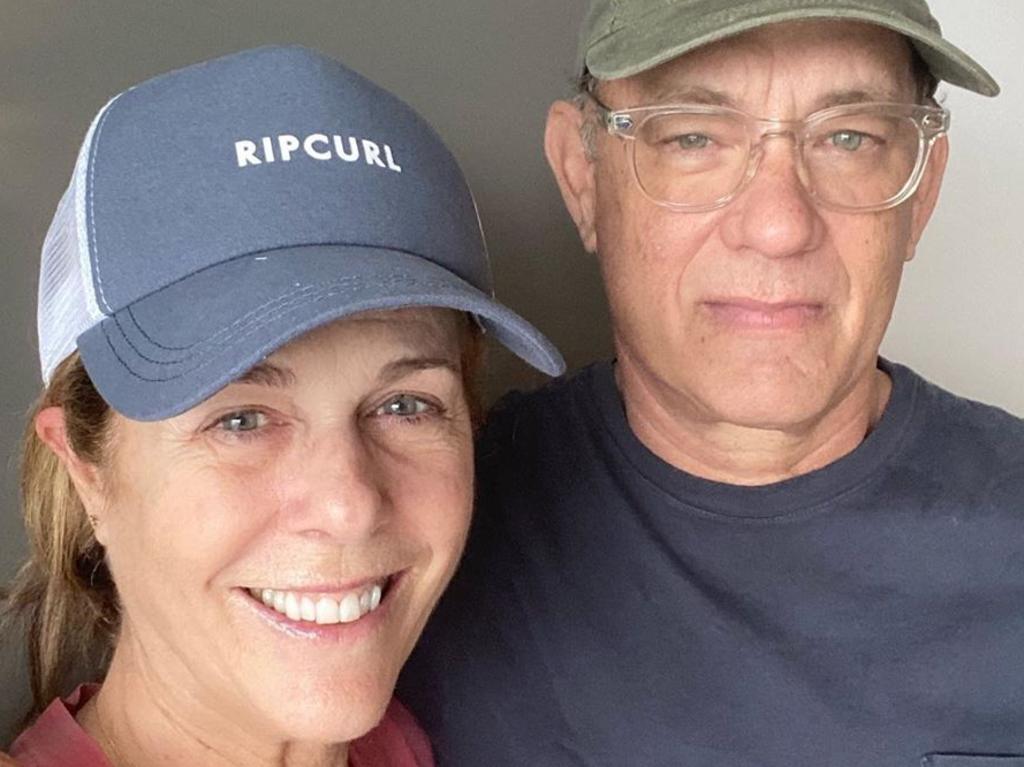Coronavirus: Rita Wilson issues warning on chloroquine after she and Tom Hanks were diagnosed in Australia
After a virus diagnosis with Tom Hanks in Australia, Rita Wilson says a drug touted as a ‘cure’ had extreme side effects.

Actor and singer Rita Wilson has detailed her experience of COVID-19 in her first interview since she was diagnosed and spoke about the “nauseating” effects of the drug chloroquine.
Wilson and her husband Tom Hanks both tested positive to coronavirus, but she said her symptoms were worse than Hanks’.
“I felt very tired and extremely achy,” Wilson told US broadcaster CBS.
“I didn’t want to be touched and had chills like I have never experienced before,” she said.
“Looking back I was also losing my sense of taste which I didn’t realise at the time.”
WATCH: In her first interview since her COVID-19 diagnosis, @RitaWilson says she's feeling great — and giving back.
— CBS This Morning (@CBSThisMorning) April 14, 2020
Wilson told @GayleKing about the story behind her #HipHopHooray remix benefiting @MusiCares, her journey to recovery, and her symptoms when she first got sick. pic.twitter.com/yF3IZrFjCS
Wilson was given the controversial drug chloroquine – normally used to treat malaria and other auto-immune diseases – to help manage her symptoms.
“I can only tell you that I don’t know if the drug worked or if it was just time for the fever to break,” she said.
“The chloroquine had such extreme side effects I was completely nauseous, I had vertigo and my muscles felt very weak.
“I think people have to be very considerate about that drug, we don’t know if it’s helpful in this case.”
President Donald Trump has touted the drug – hydroxychloroquine in particular – as a viable way to treat COVID-19.
But key health experts, including coronavirus advisor and infectious diseases doctor Anthony Fauci, said there is no evidence to support the use of the chloroquine or hydroxychloroquine to treat coronavirus.
There are there are also concerns that the medications haven’t endured the due diligence of extensive clinical trials, with growing concerns about the impact the drugs can have specifically on the heart.

Wilson revealed husband had milder symptoms of coronavirus – his fever was not as high and he did not lose his sense of taste.
She said health authorities told the couple they were both exposed to someone with COVID-19 at the same time.
“We don’t know when that could have been or where,” she said.
“But all of our close contacts, family and those on our work team – no one has tested positive.”
Here's a little background on the Hip Hop Hooray remix from a fun interview with @GayleKing on @cbsthismorning! Thanks for having me!! Remember STREAMING sends money to COVID Relief fund. Hit the to watch the full interview. #HipHopHooray #MusiCares https://t.co/Q2Rqj8pINZ pic.twitter.com/jI1CX369p6
— Rita Wilson (@RitaWilson) April 14, 2020
Wilson’s husband Tom Hanks hosted the first quarantine version of Saturday Night Live from his home after recovering from coronavirus.
The couple announced last month that they tested positive for COVID-19 and recuperated in Australia.
Wilson and Hanks donated blood to help find a vaccine and said doctors believe they are now immune from COVID-19.
“We have been part of a study and we have donated our blood. We are waiting to hear back if our antibodies will be helpful in developing a vaccine,” she said.
“But also to see if we can donate plasma to other people suffering from the virus because we are immune.”
Queensland Health would not confirm that Hanks or Wilson had been prescribed chloroquine.
However, a spokesman for Gold Coast Hospital, where the couple recovered from COVID-19, did confirm that the drug has been administered to some patients.
“Gold Coast Health has used a variety of medication in patients with more severe COVID-19,” the spokesman said.
“Chloroquine, hydroxychloroquine and lopinavir-ritonavir have been used on selected patients.
“There is much scientific debate worldwide about how best to treat COVID-19. So, we are currently identifying new international clinical trials in which our patients may be able to participate.’’






To join the conversation, please log in. Don't have an account? Register
Join the conversation, you are commenting as Logout